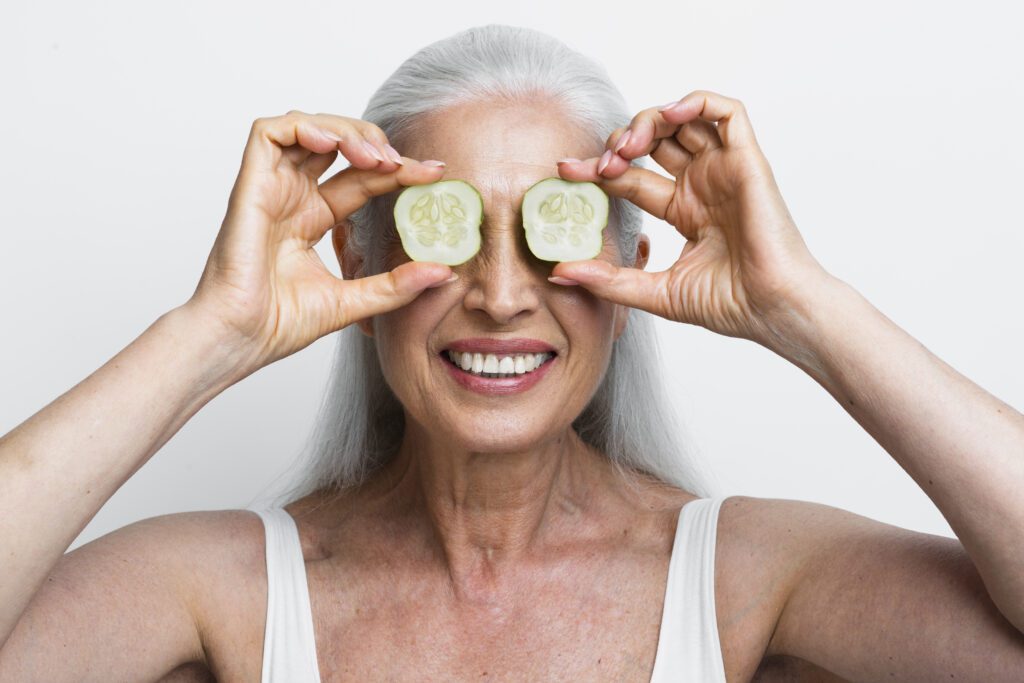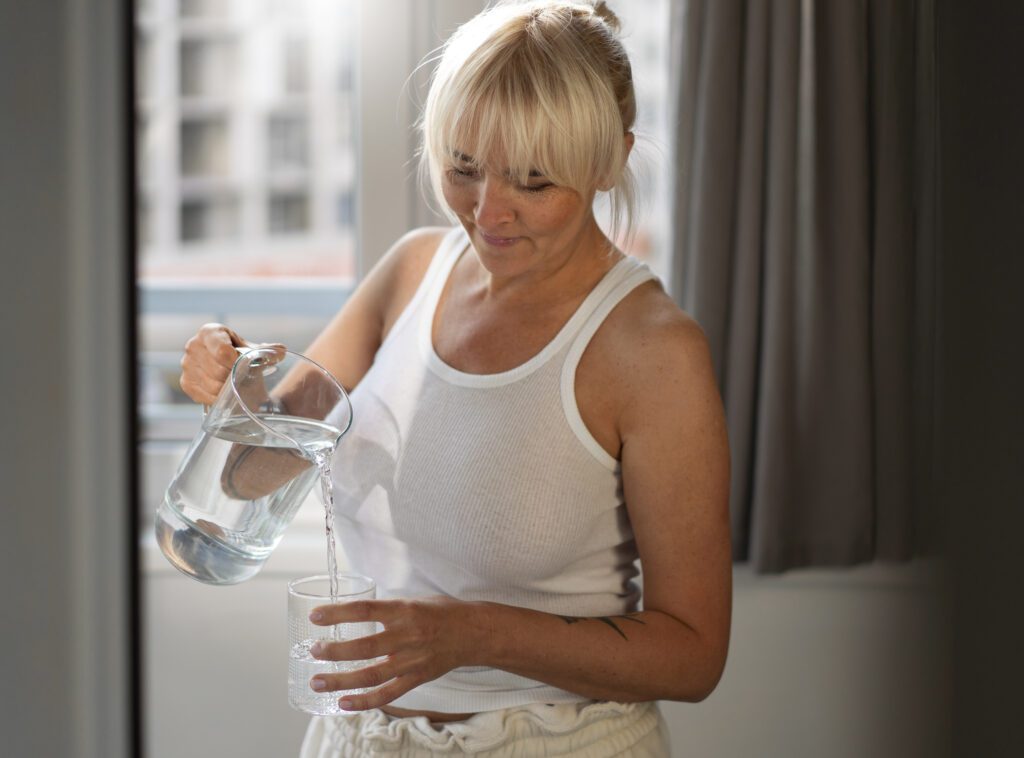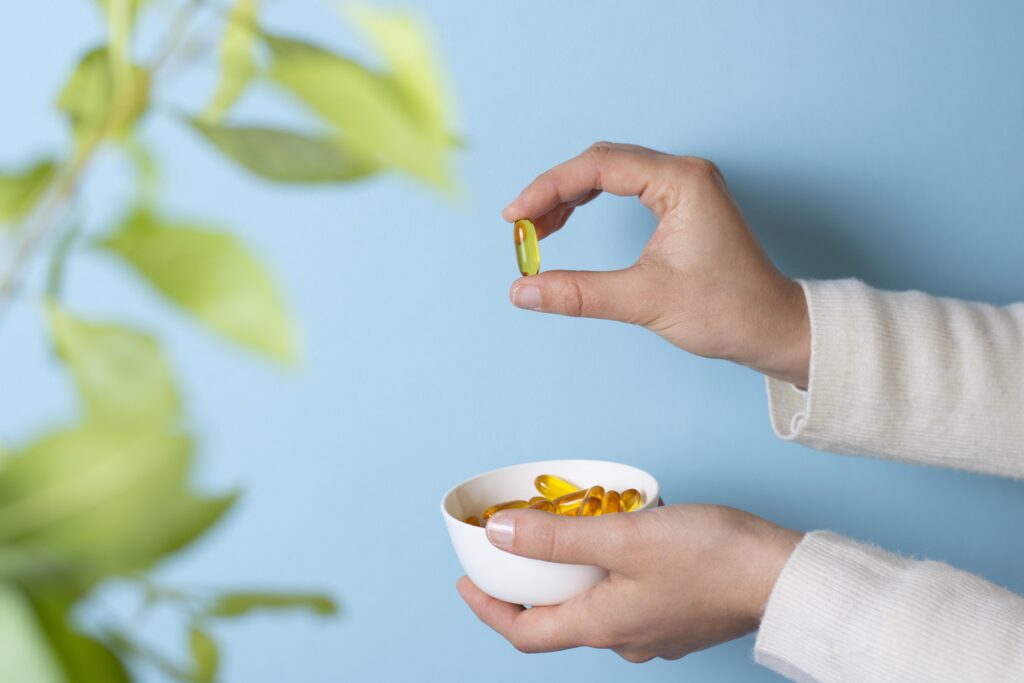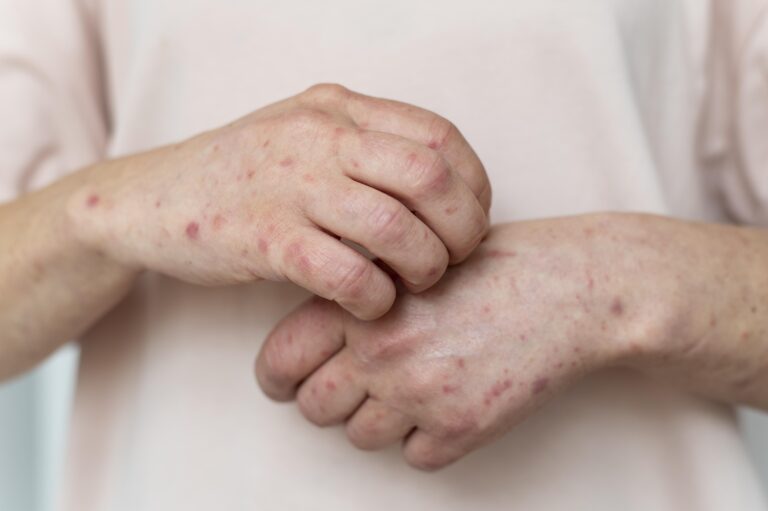Summer in Vancouver is something we look forward to all year—the long, sunny days, the vibrant energy, the time spent outdoors. But for many women navigating perimenopause and menopause, the rising temperatures can bring a sense of dread. If you find your hot flashes feel more intense or frequent during the summer, please know you are not alone, and it’s not just in your head.
As a Naturopathic Doctor, I help many women manage their menopausal symptoms, and summer requires a special set of strategies. The good news is, you don’t have to simply endure being overheated. With a holistic, naturopathic approach, you can find significant relief and enjoy this beautiful season with more comfort and confidence.
Why Do Hot Flashes Feel Worse in Summer?
Hot flashes are caused by fluctuating estrogen levels, which affect your brain’s thermostat—the hypothalamus. This makes your body more sensitive to slight changes in temperature, causing it to overreact with a sudden “flash” of heat, sweating, and flushing to cool you down [1]. When the external air temperature is already high, your body’s “thermoneutral zone” (the temperature range where you feel comfortable) narrows. This means even a tiny increase in your core body temperature can more easily trigger this intense cooling response.
Naturopathic Strategies for a Cooler, More Comfortable Summer
My approach focuses on supporting your body from the inside out to build resilience against these thermal fluctuations. Here are some key strategies:
1. Cool Down with Your Diet: Your Anti-Hot Flash Plate
What you eat can have a significant impact on your body’s internal temperature and hormonal balance.
Embrace Cooling Foods: Incorporate naturally hydrating and cooling foods like cucumber, celery, melon, leafy greens, and seasonal berries into your daily meals.
Leverage Phytoestrogens: Foods containing phytoestrogens [3] —plant-based compounds that can have a weak, estrogen-like balancing effect—may be helpful. Think ground flaxseeds, chickpeas, and lentils.
Minimize Trigger Foods: Be mindful of common triggers that can spark a hot flash. These often include spicy foods, excessive caffeine, high-sugar foods, and alcohol. Notice if reducing these makes a difference for you during the summer months.

2. Strategic Hydration for Hot Flashes & Sweating
Staying hydrated is crucial, especially if night sweats or frequent hot flashes lead to increased fluid loss.
Cooling Herbal Iced Teas: Instead of plain water all day, try sipping on chilled herbal teas known for their cooling properties, such as hibiscus, peppermint, or spearmint tea.
Electrolyte Awareness: If you’re sweating a lot, remember that you’re losing electrolytes, not just water. Adding a pinch of sea salt and a squeeze of lemon to your water, or enjoying a glass of coconut water, can help replenish these important minerals.

3. Lifestyle Adjustments for Temperature Regulation
Dress in Layers: Wear light, breathable fabrics like cotton or linen that you can easily remove or add as needed.
Create a Cool Sleep Sanctuary: Keeping your bedroom cool is essential for managing night sweats. Consider breathable bedding, a fan, or even a cool shower before bed.
Mindful Movement: Exercise is incredibly beneficial for hormonal balance, but avoid intense workouts during the hottest part of the day. Opt for morning walks, swimming, or evening yoga sessions.
Manage Your Stress: Stress is a well-known trigger for hot flashes. Regular mindfulness, deep breathing exercises, or meditation can help calm the nervous system and reduce the frequency and intensity of flashes.

4. Targeted Support: Supplements, Herbs, and HRT
For many women, diet and lifestyle changes are powerful, but targeted support can provide even more significant relief.
Evidence-Based Botanicals: Certain herbs have been well-researched for their ability to manage menopausal symptoms. Black Cohosh, for example, is one of the most studied herbs for reducing hot flashes [2]. Red Clover contains isoflavones (a type of phytoestrogen) that may also help alleviate symptoms [3].
Key Nutrients: Supplements like Magnesium can help with sleep and relaxation, while certain B vitamins can support your stress response.
Hormone Replacement Therapy (HRT): For many women, HRT is a very effective option for managing moderate to severe hot flashes and other menopausal symptoms. Using hormones that are structurally identical to what your body produces can restore balance and provide profound relief, especially during the challenging summer months.

It’s crucial to work with a qualified healthcare provider to determine which of these options are safe and appropriate for your individual health picture.
You Can Enjoy Summer!
While managing hot flashes in summer presents a unique challenge, a proactive and holistic approach can make a world of difference. By nourishing your body with cooling foods, staying strategically hydrated, adjusting your lifestyle, and considering targeted naturopathic support, you can reduce the intensity of symptoms and reclaim your enjoyment of this beautiful season.
Embrace a Healthy & Vibrant Summer
By focusing on these three pillars—staying truly hydrated, supporting your skin holistically, and balancing your immune response—you can fully embrace all the joy that a Vancouver summer has to offer. These naturopathic summer health tips are about working with your body to create resilience and vitality.
If you are struggling with hot flashes or other menopausal symptoms and would like to create a personalized, comprehensive plan to navigate this transition with vitality, I invite you to book a consultation.
References:
- Freedman, R. R. (2014). Menopausal hot flashes: mechanism, endocrinology, treatment. The Journal of steroid biochemistry and molecular biology, 142, 115–120.
- Mehrpooya, M., Rabiee, S., Larki-Baghbanan, M., Emtarazi, O., & Fallahian, M. (2018). A comparative study on the effect of “black cohosh” and “evening primrose oil” on menopausal hot flashes. Journal of education and health promotion, 7, 36.
- Lethaby, A., Marjoribanks, J., Kronenberg, F., Roberts, H., Eden, J., & Brown, J. (2013). Phytoestrogens for menopausal vasomotor symptoms. The Cochrane database of systematic reviews, 12, CD001395.



